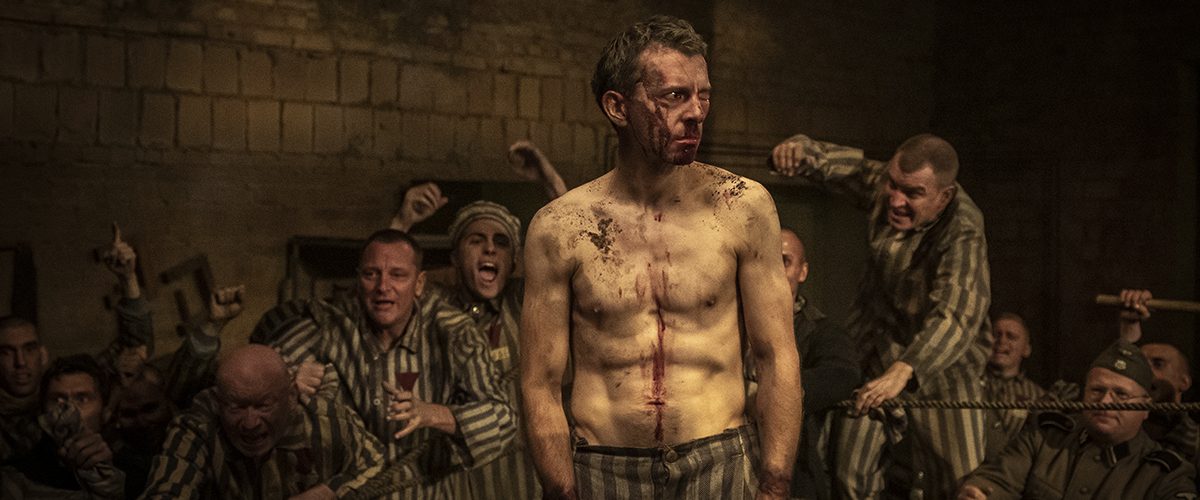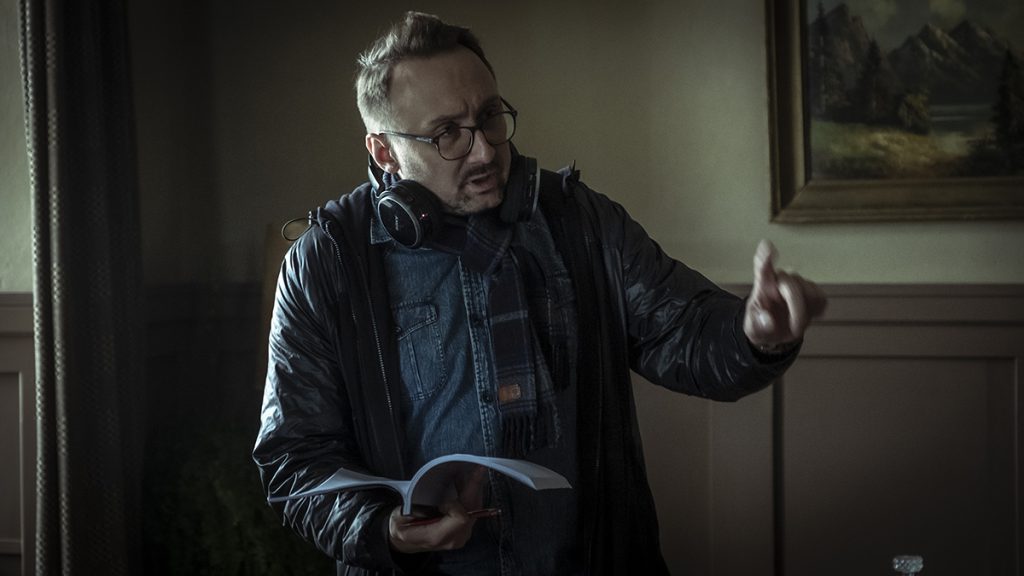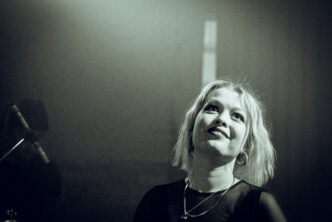Warsaw boxing champion, Tadeuz “Teddy” Pietryzkowsi was among the first prisoners transported to the Auschwitz concentration camp in 1940. Director and Screen writer, Maciej Barczewski tells how he brought Teddy’s biggest fight for survival to the screen, in a new film, The Champion of Auschwitz starring, Piotr Głowacki.
What made you interested in the story of Tadeusz “Teddy” Pietrzykowski, a boxer from KL Auschwitz, and why did you decide to write a script about him?
Maciej: “Tadeusz Borowski, a famous war-time Polish writer, wrote in one of his stories: ‘There is still the memory of the number 77, who used to box the Germans as he wanted, taking revenge in the ring for what others got in the field’. This sentence intrigued me so much that I began to investigate the fate of the prisoners of the first transport to the Auschwitz camp, especially Tadeusz Pietrzykowski, marked with number 77. I was fascinated by the fact that for his fellow inmates he was a symbol of hope for victory over Nazi terror. At the same time, it turned out that today he is a relatively unknown, although due to the place and circumstances in which he had to fight, his duels became almost mythical. For his contemporaries, he was a superhero”.
The film opens with information that it is inspired by real events. How much truth is there and how much fiction?
Maciej: “Most of the events shown in ‘The Champion’ actually happened. However, as in the case of other fact-based films, the need to maintain a clear narrative and emotional tension imposed the necessity to introduce changes, whether in terms of the chronology of events, locations or characters with whom the main character comes into contact. Due to the rules of the art of film drama, introducing such changes was necessary, but I wanted to preserve the historical texture of the events, as well as to reveal the truth about the essence of the main character”.
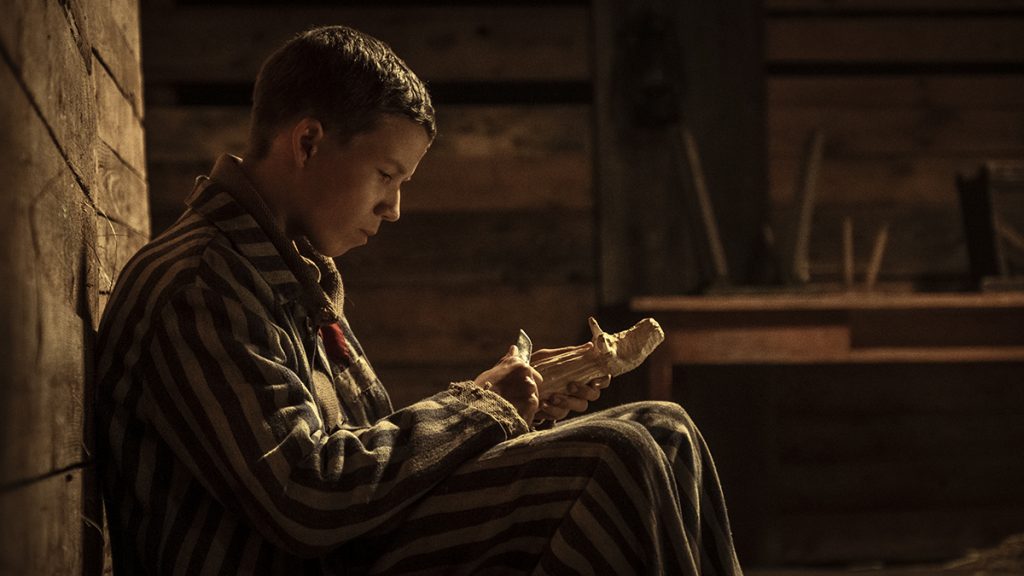
Was the fact that you are the author of the script helpful in the work on the set?
Maciej: ” Of course, the communication between the director and the scriptwriter ran relatively smoothly and almost without conflicts (laughs). The amount of information about the Auschwitz camp and Tadeusz Pietrzykowski gathered during the almost three years of preparation for the shooting has often proved to be useful in cooperation with all production divisions”.
I am convinced that for years there has not been a role in Polish cinema that would require such a far-reaching physical and workshop commitment from an actor
Maciej Barczewski
How did you decide on Piotr Głowacki for the lead role?
Maciej: “When I started working on the script for “The Champion”, some people suggested that the main role should be played by an athletic young actor with a bully appearance. Meanwhile, Teddy’s strength lay not in his muscles, but in his masterful technique and fortitude. I knew that in order to create a convincing character of Teddy I was going to need an actor who, at first glance, would be the opposite of the boxer archetype.
“Someone who looks inconspicuous, even harmless, but in whose eyes you can see two clenched fists. At the same time, it should be an actor who, for the role of an Auschwitz prisoner, is willing to undergo a radical transformation of his body, but also to master the boxing technique to the extent that allows fighting without cuts and without the participation of a double. I am convinced that for years there has not been a role in Polish cinema that would require such a far-reaching physical and workshop commitment from an actor. Piotr was my first and only choice and he more than met these expectations”.
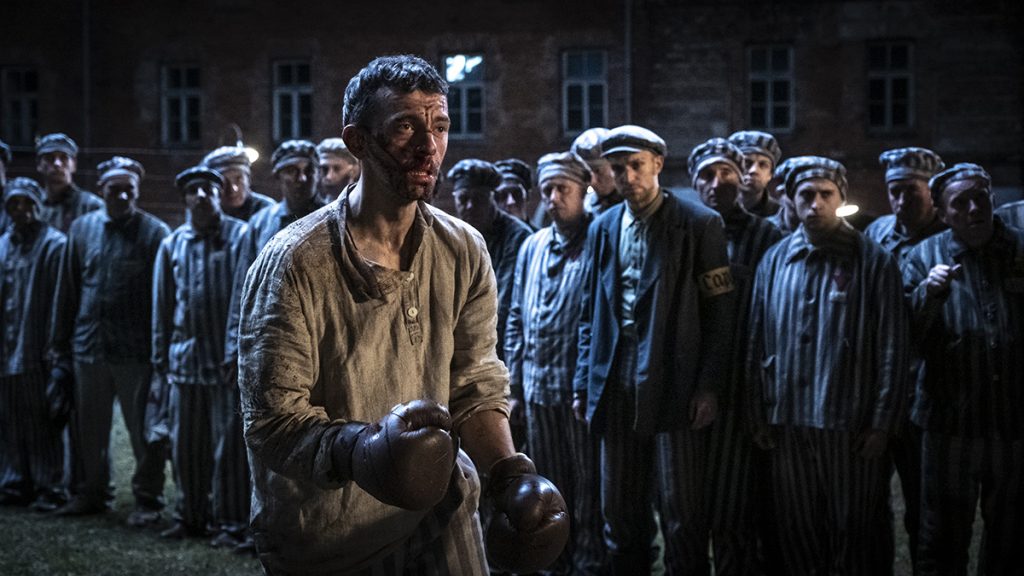
You can also see other great Polish actors in the film, including Grzegorz Małecki, Marcin Bosak, Marian Dziędziel, Piotr Witkowski and Rafał Zawierucha. What was your way of getting the best out of them on set?
Maciej: “There was no magic recipe here. I realized that with such a demanding project, a very tight schedule of shooting, with German-speaking roles played by Polish-speaking actors, the key to success would be intense and long lasting rehearsals. We spent the entire summer of 2019 rehearsing and polishing the nuances of the characters. Entering the set, the actors basically once again performed what we had developed earlier, modifying the details of their performances to a specific location or scenography”.
Is Tadeusz “Teddy” Pietrzykowski a hero that the contemporary viewer can identify with?
Maciej: “Definitely. Pietrzykowski, like the biblical David, fought Goliath in the camp arena, just as each of us struggles with adversities every day. The fact that he fought his fights under the most difficult conditions, in the worst time and place in the world, and continued to win despite everything, gives each of us hope that there is no such obstacle that ultimately cannot be overcome. It can be said that we are all warriors in the ring of our lives. On the other hand, the screen character of Pietrzykowski reminds that even if all hope is fading, even in the worst circumstances one should not lose it and stop fighting”.
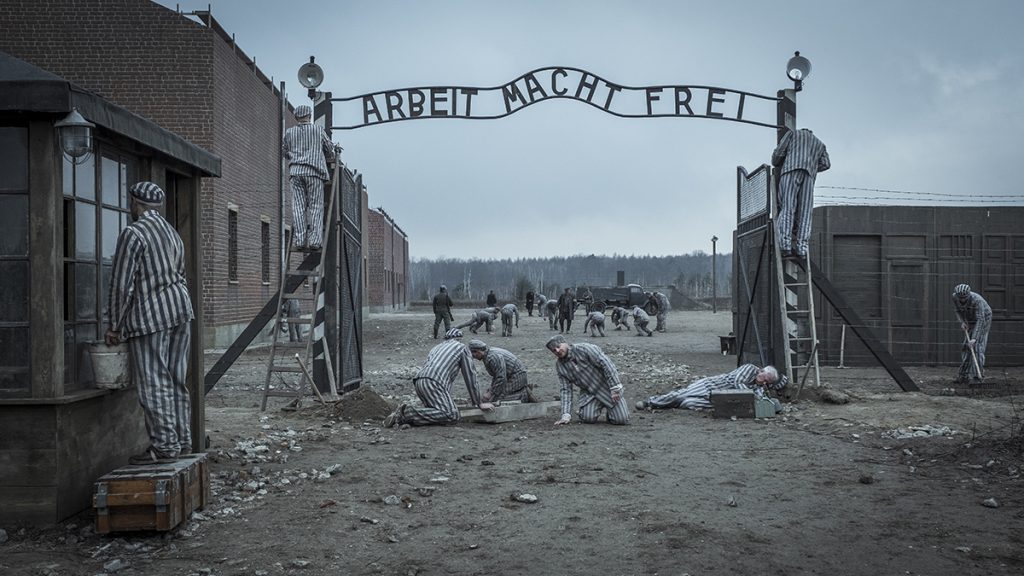
What were the biggest challenges on the set of The Champion?
Maciej: “The weather. A dozen or so days before the shooting, a storm passed over Poland and destroyed our camp scenography. In this situation, we had to reconstruct what we could and “add” the rest in post-production using digital effects. Fortunately, despite a modest budget, thanks to hard work and commitment of VFX specialists, the marriage of real sets with VFX elements was successful”.
Why do you think this movie is worth watching?
Maciej: “From the beginning of my work on The Champion, I wanted to provide emotions that were often lacking in cinema referring to the subject of war or sports. We tried to create a film story, which, thanks to the level of execution and its universal message, would be able to compete with international features. Most of all, however, The Champion is worth seeing because it is a movie that combines a story about an extraordinary man with a contemplation on the meaning of hope in extreme situations. And the price we sometimes have to pay for hope.”
The Champion of Auschwitz will be available in UK/EIRE Cinemas from 3 September 2021

